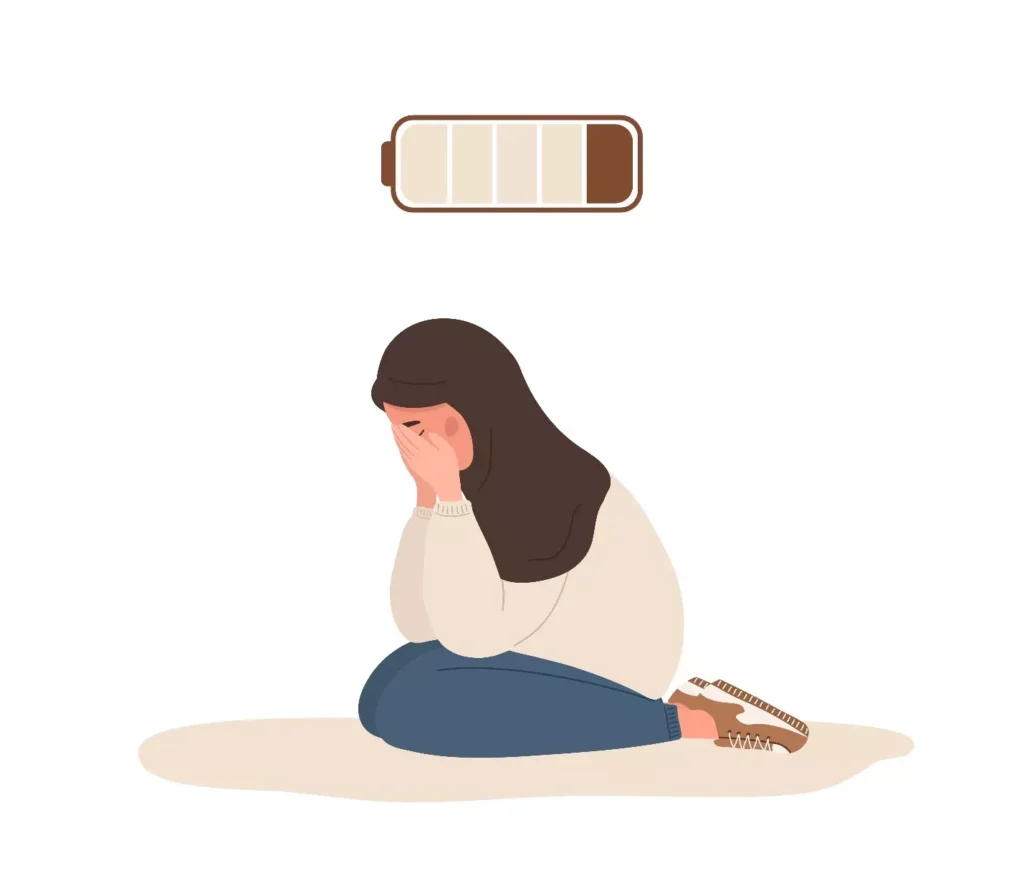Islamic Mindfulness: How Dhikr and Salah Can Improve Mental Health
Mental health challenges have been on the rise globally for quite some time. An estimated 12.5% of the world’s population suffers from at least one mental disorder. Stress, anxiety, and an unrelenting workload have led to a deterioration of our mental health. The pace of life has accelerated exponentially.

There is a pressure to keep up materially with those around us. The competition is even more severe when we consider the ubiquitous use of smartphones. Social media usage has resulted in an extraordinary yet voluntary lack of privacy. We live under a microscope, opening up even the most mundane aspects of our lives to strangers without a real sense of connection.
Our present circumstances combine excessive pressure to work and achieve material success with a lack of a communal bond to provide support. This disconnect from faith and community is at the core of this issue. Without belief and blind trust in a Higher Power (سُبْحَانَهُ وَتَعَالَى), we are truly lost. Lacking a deeper spiritual purpose, the conclusion of the hedonistic life is the destruction of the self, which elicits itself in the form of various mental disorders.
Salvation in the Remembrance of Allah (سُبْحَانَهُ وَتَعَالَى)
Islamic mindfulness can be the answer to our mental woes. It relates to the conscious awareness of Allah (سُبْحَانَهُ وَتَعَالَى)’s existence. His Omniscience and Omnipotence. Knowing that there is a Higher Power (سُبْحَانَهُ وَتَعَالَى) who is All-Mighty and All-Knowing provides a sense of relief. Finding salvation in faith and turning towards Allah (سُبْحَانَهُ وَتَعَالَى) gives our life purpose—a purpose beyond this temporary, physical existence.
We are not burdened by the pressures of pleasing others or competing with others since we aim to please Allah (سُبْحَانَهُ وَتَعَالَى) alone. Additionally, recognizing the fleeting nature of this life makes us value possessions less. The stress and anxiety of succeeding through the attainment of possessions are diminished since real success is pleasing Allah (سُبْحَانَهُ وَتَعَالَى).
It is in the remembrance of our Creator (سُبْحَانَهُ وَتَعَالَى), the Rabb (سُبْحَانَهُ وَتَعَالَى), that we can achieve peace of mind. Islamic mindfulness teaches us to make Allah (سُبْحَانَهُ وَتَعَالَى) the center of our universe. Our belief provides us with the light we need to keep moving forward while our faith in Allah (سُبْحَانَهُ وَتَعَالَى) keeps us grounded no matter how turbulent life becomes.
Gaining Mindfulness through Dikhr and Salah
Dikhr and Salah are the best ways to fill our minds with the remembrance of Allah (سُبْحَانَهُ وَتَعَالَى). Here is how each works to develop mindfulness:
· Salah-the Obligatory Worship
All Muslims are well aware of the five daily obligatory prayers. Forming the second pillar of faith, right after belief in the Oneness and Unity of Allah (سُبْحَانَهُ وَتَعَالَى), Salah is the routine remembrance of our Lord (سُبْحَانَهُ وَتَعَالَى). While Salah has been made mandatory for all Muslims who are of age and sound mind, we pray for our deliverance. Allah (سُبْحَانَهُ وَتَعَالَى) makes this clear in the following verses of the Holy Quran:
“O men, it is you who need God. As for God, He is above all need, worthy of praise.” [35:15]
The verse above indicates that we pray Salah for ourselves. Allah (سُبْحَانَهُ وَتَعَالَى) is deserving of all praise, however, He does not require it. His greatness is beyond our comprehension. The purpose of Salah is to save ourselves by submitting in front to Allah (سُبْحَانَهُ وَتَعَالَى).
Salah helps to organize us by helping us to get into a routine. It keeps us focused on what is important: The Hereafter. It is easy to lose sight of our true purpose in the daily activities of our lives. Salah strengthens our bond with our Lord (سُبْحَانَهُ وَتَعَالَى) and helps us to think about our eternity rather than fuss over our worldly tasks.
· Dikhr-the Voluntary Remembrance
Aside from the mandatory prayers, we can always turn to Allah (سُبْحَانَهُ وَتَعَالَى) regardless of the time and conditions. Salah has its perquisites that must be fulfilled. For example, each Salah has an appointed time, and it can only be offered if the worshipper is in a state of purification. Dikhr is bound by no such limitations, making it personal. We can invoke Allah (سُبْحَانَهُ وَتَعَالَى) at any time, using any words, He is the All-Knowing (سُبْحَانَهُ وَتَعَالَى).
Dikhr is that; like meditation or deep thought, it allows us to disconnect from earthly reality and connect with Allah (سُبْحَانَهُ وَتَعَالَى). Whether you are turning to Allah (سُبْحَانَهُ وَتَعَالَى) for mere remembrance or desperately seeking His help with a specific problem, Dikhr is a means to spiritual peace. It is a force of healing against physical, mental, and spiritual maladies.
Popular Dikhr that Cures and Protects
While there is no debate about Salah, as there is a particular manner in which it must be performed, the same is not the case with Dikhr. Finding a suitable way to perform Dikhr can be difficult since there are no defined conditions or requirements. It is best to go over some popular Dikhr that Muslims have used to invoke Allah (سُبْحَانَهُ وَتَعَالَى) and gain mindfulness.
Here are some popular Dikhr:
· Dikhr to Seek Forgiveness
Supplicating to Allah (سُبْحَانَهُ وَتَعَالَى) and seeking forgiveness from Him is an excellent form of Dikhr. We must ask for repentance for our shortcomings. Here is a wonderful supplication that the Holy Prophet (ﷺ) used to recite frequently, as reported by Hazrat Abu Huraira (رَضِيَ ٱللَّٰهُ عَنْهُ):
“I heard Allah’s Messenger (ﷺ) saying.” By Allah! I ask for forgiveness from Allah and turn to Him in repentance more than seventy times a day.” [Sahih al-Bukhari, 6307]
· Dikhr to Relieve the Daily Stress of Life
Dikhr to relieve ourselves of the hectic routine and reduce the stress related to it can be very useful. One of the most famous examples of Dikhr being used to do so is from the life Hazrat Fatima (رَضِيَ ٱللَّٰهُ عَنْهَا). The following is a narration recorded by Hazrat Ali (رَضِيَ ٱللَّٰهُ عَنْهُ):
Fatima complained about the blisters on her hand because of using a mill-stone. She went to ask the Prophet for servant, but she did not find him (at home) and had to inform `Aisha of her need. When he came, `Aisha informed him about it. `Ali added: The Prophet (ﷺ) came to us when we had gone to our beds. When I was going to get up, he said, “‘Stay in your places,” and sat between us, till I felt the coolness of the feet on my chest. The Prophet (ﷺ) then said, “Shall I not tell you of a thing which is better for you than a servant? When you (both) go to your beds, say ‘Allahu Akbar’ thirty-four times, and ‘Subhan Allah’ thirty-three times, ‘Al hamdu ‘illah’ thirty-three times, for that is better for you than a servant.” Ibn Seereen said, “Subhan Allah’ (is to be said for) thirty-four times.” [Sahih al-Bukhari, 6318]
· Dikhr to Alleviate Anxiety and Sorrow
DIkhr can be effective when one is feeling sad and overcome with anxiety. For example, believers can read this dua for anxiety:
Allaahumma ‘innee ‘a’oothu bika minal-hammi walhazani, wal’ajzi walkasali, walbukhli waljubni, wa dhala’id-dayni wa ghalabatir-rijaal.
“O Allah, I seek refuge in you from grief and sadness, from weakness and from laziness, from miserliness and from cowardice, from being overcome by debt and overpowered by men.” [Hisnul Muslim 121]
· Dikhr Seeking Goodness in this World and the Next
We must not pray for ease in this life but also the next. The supplication mentioned below, from the authority of Hazrat Anas (رَضِيَ ٱللَّٰهُ عَنْهُ), can be a Dikhr for seeking goodness in this life and the Hereafter:
” Our Lord, grant us the good in this world and the good in the Hereafter and save us from the torment of Hell Fire.” [Sahih Muslim 2690 b]
· Dikhr to Invoke Guidance
Similarly, invoking Allah (سُبْحَانَهُ وَتَعَالَى) for His guidance and favor is another important Dikhr. Hazrat Abdullah (رَضِيَ ٱللَّٰهُ عَنْهُ) reports that the Holy Prophet (ﷺ) frequently prayed the supplication below:
” O Allah. I beg of Thee the right guidance, safeguard against evils, chastity and freedom from want.” [Sahih Muslim 2721 a]
Relieving the Mind through Salah and Dikhr
Islamic mindfulness is the use of already-established means of prayer to reduce stress and anxiety. Our connection with Allah (سُبْحَانَهُ وَتَعَالَى) and the strength of our faith act as a shield against the daily stressors of life. Prayer and Dikhr ground us in reality.
They remind us of the temporary nature of this world, which allows us to care less about life’s worries. It liberates us and focuses our attention on seeking Allah’s (سُبْحَانَهُ وَتَعَالَى) pleasure. Pleasing Allah (سُبْحَانَهُ وَتَعَالَى) requires our deep devotion to Him and regular worship. It requires us to become better humans, and doing this is easier than competing with others for more resources.
Zain Jawwad is a skilled copywriter and content creator who writes high-quality articles and blogs. He has experience covering a wide range of topics with valuable insights. Zain also occasionally contributes articles to Muslim & Quran.






I don’t think the title of your article matches the content lol. Just kidding, mainly because I had some doubts after reading the article.
Thank you for your sharing. I am worried that I lack creative ideas. It is your article that makes me full of hope. Thank you. But, I have a question, can you help me?